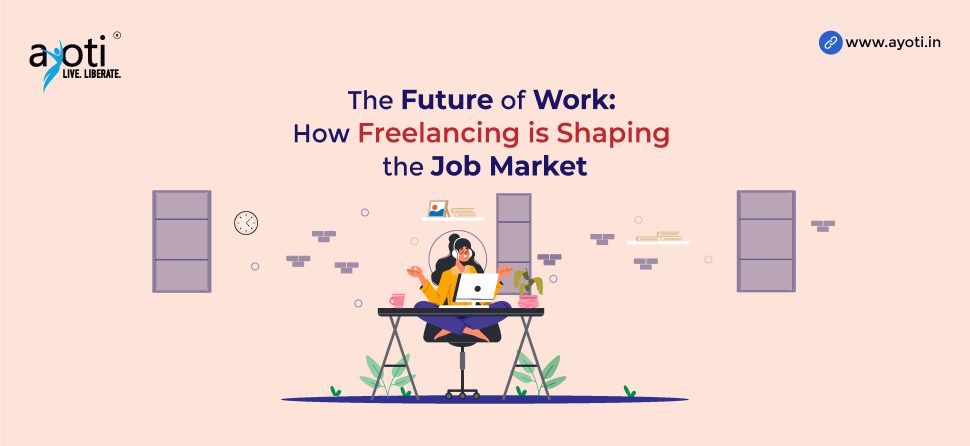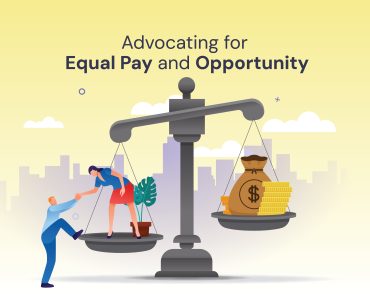By ayoti
The Future of Work: How Freelancing is Shaping the Job Market
The way people work has changed dramatically in recent years. The gig economy, often known as the rise of freelancing, has transformed the work market and put traditional employment ideas to the test. For those looking for a new method to make a living, freelancing offers variety, autonomy, and flexibility. This blog post will examine how the future of work and the employment market are being shaped by freelancing.
The Emergence of the Gig Economy:
The gig economy refers to a labour market characterised by the prevalence of short-term contracts or freelance work as opposed to permanent jobs. This change has been prompted by several factors, such as the development of technology, shifting perspectives on the nature of employment, and the need for increased flexibility. It is now simpler than ever to identify and offer freelance services because websites like Upwork, Fiverr, and TaskRabbit have facilitated the link between freelancers and clients.
Flexibility and Autonomy:
The flexibility that freelancing offers is one of its main draws. Freelancers are allowed to select their hours, locations, and working methods. They can choose their hours, work on assignments that suit their interests and skills, and do so from anywhere. With this degree of autonomy, people may better combine their personal and professional lives and follow their hobbies while making a living.
Diverse Job Opportunities:
Freelancing has opened up a plethora of job opportunities across various industries. From graphic design and writing to programming and consulting, freelancers can offer their expertise and services to a global client base. Due to the variety of chances available, people can explore various interests, learn new talents, and create a body of work that represents their ability.
Upskilling and Adaptability:
To thrive in the gig economy, freelancers must continuously upskill and adapt to market demands. Freelancers must stay on top of trends as technology is developing quickly if they want to remain competitive. This emphasis on personal and professional growth encourages freelancers to embrace lifelong learning and seek opportunities to expand their knowledge and expertise.
The Future of Traditional Employment:
The rise of freelancing has challenged the traditional employment model, transforming how businesses and organisations operate. Many companies are now leveraging the gig economy to access specialised skills as needed rather than maintaining large in-house teams. This change enables organisations to be more adaptive, economical, and agile in a business environment that is changing quickly.
Benefits of Freelancing:
- Flexibility and Autonomy: Freelancers can choose tasks, set timetables, and work from anywhere. Due to this flexibility, they can establish a work-life balance that meets their requirements and priorities.
- Increased Earning Potential: They often have the opportunity to set their rates and negotiate contracts directly with clients. This means they can earn more than they would in a traditional employment setup, especially as they gain experience and develop specialized skills.
- Diverse Clientele and Projects: With freelancing, people can work with various clients and projects, leading to a more enriching and stimulating professional experience. This diversity keeps work interesting and allows freelancers to expand their skill sets and knowledge in different industries.
- Personal Growth and Skill Development: Freelancers constantly face new challenges and opportunities. They must stay updated with industry trends, learn new technologies, and adapt to changing client demands. This ongoing learning and skill development contribute to personal and professional growth, making freelancers more adaptable and resilient in the job market.
- Creative Freedom: They can use their imagination and work on projects that pique their interest and passion. They can select tasks that let them demonstrate their special talents and abilities, making their time at work more rewarding and satisfying.
The Rise of Digital Nomadism:
The rise of digital nomadism, a way of life that enables people to work remotely while travelling the world, has been partly attributed to freelancing. Freelancers are no longer restricted by location since they can now access the internet anywhere. This phenomenon has altered how people work and affected the travel and tourism sector and opened up chances for remote work hubs in diverse locations.
The Gig Economy and Economic Growth:
The gig economy has become a significant contributor to economic growth globally. It has created job opportunities, stimulated entrepreneurship, and encouraged innovation. Freelancers often collaborate with multiple clients and projects simultaneously, which fosters cross-pollination of ideas and knowledge transfer. This dynamic environment promotes creativity and economic development in developed and emerging markets.
Conclusion:
The job market is being transformed by freelancing, which also influences the future of work. Freelancing emphasizes flexibility, autonomy, and diverse opportunities, allowing individuals to design their careers and pursue meaningful work.
Businesses, governments, and individuals must adjust to this new paradigm as the gig economy expands and accept the benefits and difficulties it provides. By fostering an environment that supports freelancers and promotes innovation, we can create a future of work that is both fulfilling and economically prosperous.





